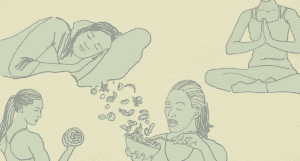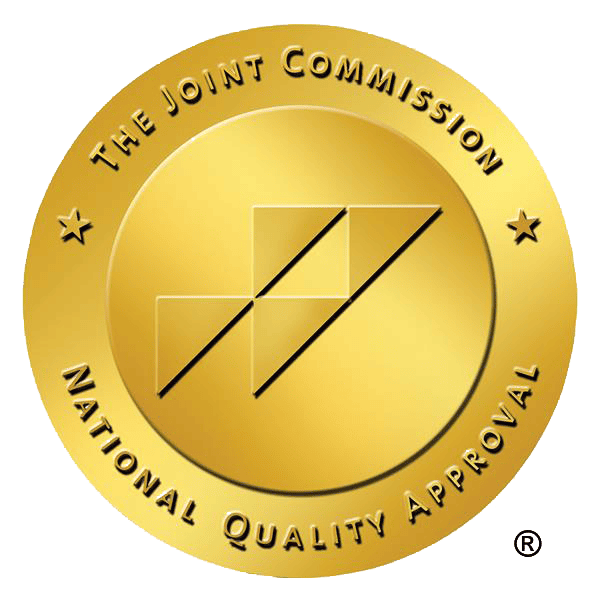At Prairie Recovery, we recognize that each individual’s journey to recovery is unique. To support this, we offer both Cognitive Behavioral Therapy (CBT) and Dialectical Behavior Therapy (DBT) as part of our holistic approach to healing. These therapeutic approaches each provide valuable tools to help manage mental health conditions and behaviors that may contribute to addiction or interfere with daily life. In this article, we’ll break down the differences and similarities between CBT and DBT and help you determine which approach might be best suited to your needs.
What Is CBT?
Cognitive Behavioral Therapy (CBT) is a form of psychotherapy focused on identifying and changing negative thought patterns and behaviors. The primary goal is to understand how certain thoughts impact emotions and behaviors and to replace those unhelpful thoughts with more constructive ones. CBT is based on the idea that our thoughts, feelings, and behaviors are interconnected and that challenging and reframing negative thinking can lead to positive changes in mood and behavior.
What Disorders Are Treated with CBT?
CBT is highly versatile and evidence-based, effective for treating a range of mental health disorders. At Prairie Recovery, we often recommend CBT for individuals struggling with:
- Depression and anxiety disorders: CBT can help clients learn how to identify and change unhelpful thought patterns contributing to symptoms of depression and anxiety.
- Substance use disorders: By addressing negative thoughts that contribute to cravings and destructive behaviors, CBT is an excellent tool for addiction recovery.
- Obsessive-Compulsive Disorder (OCD): CBT techniques can help individuals learn to manage obsessive thoughts and compulsive behaviors.
- Post-Traumatic Stress Disorder (PTSD): CBT, particularly trauma-focused CBT, is effective in helping individuals process and cope with trauma-related symptoms.
- Eating disorders: By changing distorted thoughts about food, body image, and self-worth, CBT can be a powerful part of recovery for those with eating disorders.
What to Expect During a CBT Session
In a typical CBT session at Prairie Recovery, you’ll work with a therapist to explore thought patterns that may be contributing to unwanted behaviors or emotional distress. Sessions usually follow a structured approach where specific issues are addressed in each session. For example, you may begin by identifying situations that trigger negative thoughts, and then work through exercises designed to challenge and reframe these thoughts. Over time, CBT sessions help you develop healthier ways of thinking and responding to life’s challenges.
Expect to engage in activities like:
- Journaling: Tracking your thoughts and feelings in a journal to identify patterns.
- Behavioral experiments: Testing new behaviors to see how they affect your emotions.
- Exposure therapy: Gradual exposure to feared situations in a safe environment (useful in treating anxiety and PTSD).
What Is DBT?
Dialectical Behavior Therapy (DBT) was developed from CBT principles but is adapted to treat individuals who experience intense emotional responses. DBT emphasizes the balance between acceptance and change, which can be especially helpful for those with chronic emotional dysregulation. The core of DBT focuses on learning skills in four main areas:
- Mindfulness: Developing present-moment awareness to observe and describe thoughts, feelings, and experiences.
- Distress tolerance: Building the ability to tolerate distressing situations without resorting to harmful coping mechanisms.
- Emotional regulation: Learning to identify and manage emotions in a healthier way.
- Interpersonal effectiveness: Improving communication skills to maintain healthy relationships.
What Disorders Are Treated with DBT?
While DBT can benefit many, it is especially effective for individuals dealing with:
- Borderline Personality Disorder (BPD): DBT was initially developed to treat BPD and is highly effective in managing emotional instability associated with the disorder.
- Substance use disorders: DBT’s skills-building approach can help people manage cravings and distressing emotions that contribute to relapse.
- Self-harm and suicidal behaviors: DBT offers coping mechanisms and skills to manage intense emotions and self-destructive behaviors.
- Eating disorders: DBT is beneficial for individuals who struggle with disordered eating, especially when associated with emotional dysregulation.
- PTSD and complex trauma: The mindfulness and distress tolerance skills in DBT can be helpful for trauma survivors to process and manage distressing memories.
What to Expect During a DBT Session
At Prairie Recovery, DBT is typically structured into individual therapy and group sessions. During individual sessions, you’ll work closely with a therapist to apply DBT skills in real-life situations. You’ll also attend group skills training sessions, where you’ll learn and practice DBT’s four core skills in a supportive environment.
Expect to engage in activities like:
- Mindfulness exercises: Practicing mindfulness helps increase self-awareness and emotional control.
- Skills-building workshops: DBT skills are often taught in a structured group format, which allows individuals to practice in a social setting.
- Homework assignments: Clients are given assignments to apply DBT skills in everyday situations, which helps reinforce what is learned in sessions.
Differences Between CBT and DBT
While both CBT and DBT are rooted in similar principles of thought and behavior modification, they have distinct differences:
- Focus: CBT is primarily focused on changing thought patterns to influence behavior, while DBT emphasizes acceptance as well as change, particularly for managing intense emotions.
- Structure: CBT tends to be more structured, with a specific goal for each session. DBT, however, often combines both individual and group sessions for comprehensive skill-building.
- Application: CBT is broadly applicable for many mental health conditions, while DBT is specialized for conditions involving emotional dysregulation, such as BPD and self-harm.
- Techniques: CBT uses techniques like cognitive restructuring and exposure, whereas DBT emphasizes mindfulness, distress tolerance, and emotional regulation.
Similarities Between CBT and DBT
Despite their differences, CBT and DBT share some core similarities:
- Behavioral focus: Both therapies aim to help clients change problematic behaviors by addressing the underlying thoughts and emotions.
- Skills-building: Each therapy involves learning practical skills that clients can use to manage symptoms outside of therapy sessions.
- Evidence-based: Both CBT and DBT are backed by research and are widely recognized as effective treatments for mental health conditions.
How Do I Know If CBT or DBT Is Right for Me?
Choosing between CBT and DBT can depend on your personal needs and treatment goals. Here are some general guidelines to consider:
- If you struggle with negative thought patterns or are dealing with anxiety, depression, or OCD: CBT may be a good fit, as it directly addresses these thought patterns.
- If you experience intense emotions or struggle with self-destructive behaviors: DBT might be the better choice, as it provides tools specifically designed to manage emotional dysregulation and promote emotional stability.
- If your condition involves both thought patterns and intense emotions: It’s possible to benefit from a combination of both CBT and DBT techniques. At Prairie Recovery, our therapists will work with you to customize a treatment plan that fits your unique needs.
Therapy for Drug and Alcohol Detox

Detox is often the first step in overcoming drug or alcohol addiction, but it involves more than just eliminating substances from the body. Effective detox programs incorporate therapy to support the emotional and psychological aspects of withdrawal and recovery. By addressing the underlying causes of addiction, therapy can play a pivotal role in preparing individuals for long-term success beyond the initial detox phase. Here’s a closer look at why therapy is essential during detox and the types of therapy commonly offered.
Emotional Support During Withdrawal
The physical effects of withdrawal can be intense, but the psychological aspects can be equally challenging. Feelings of anxiety, depression, and mood swings are common during detox, as the brain adjusts to functioning without substances. Therapy offers a safe space to explore these emotions, providing support and coping strategies to manage these feelings.
Uncovering the Root Causes of Addiction
Identifying root causes early on in detox prepares individuals for the next stages of treatment, giving them insight into the patterns and triggers that they’ll need to navigate during recovery. This self-awareness is a key element in helping prevent future relapses. Therapy can help bring these issues to the surface, allowing individuals to begin confronting them and ultimately addressing them in more productive ways.
Building Coping Skills for Lasting Recovery
Effective detox programs use therapy to teach coping skills that clients can use throughout their recovery journey. Substance use often becomes a way of coping with stress, pain, or difficult emotions. During detox, individuals learn healthier coping strategies for managing cravings, stress, and emotional discomfort. Therapies like Cognitive Behavioral Therapy (CBT) are frequently used during detox to help clients recognize and change negative thought patterns that may lead to substance use.
Preparing for Long-Term Treatment
Therapy in detox also plays a crucial role in setting the stage for longer-term recovery. Detox is often the first phase in a continuum of care that includes residential treatment, outpatient programs, and aftercare. Therapy helps individuals see detox as the start of a broader recovery journey rather than an isolated step.
Prairie Recovery: CBT and DBT Programs Tailored to You

At our Texas rehab, we know that recovery is a deeply personal journey. Our compassionate team is dedicated to providing evidence-based therapies like CBT and DBT to guide you on your path to a healthier and more fulfilling life. Whether you’re struggling with addiction, mental health conditions, or complex trauma, our skilled therapists are here to support you every step of the way.
In our CBT program, we help clients uncover and challenge unhelpful thoughts, building a foundation for long-term recovery. Through DBT, we provide practical tools to manage intense emotions and build resilience in the face of life’s challenges. Both therapies offer unique benefits, and our team will work with you to create a plan that best suits your needs.
If you’re considering CBT or DBT and want to learn more about our programs, don’t hesitate to reach out to us. We’re here to answer any questions and help you take the first step toward lasting recovery.









